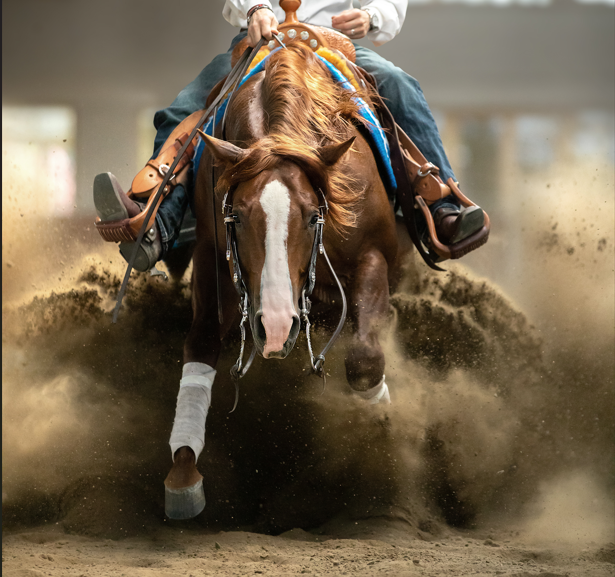Mein Shop
PETPEARL BOOSTER- Amino acids for strengthening and strong muscles
PETPEARL BOOSTER- Amino acids for strengthening and strong muscles
Couldn't load pickup availability
Muscles don't grow from food alone—that's clear. Feeding and intensive training must be combined.
The most famous athletes have them so that they can achieve peak athletic performance—"the right muscles." The main function of the horse's various muscle chains is to transform it from a pasture horse into a riding horse. Whether in show jumping, dressage, or other equestrian disciplines
Strong muscles are the most important prerequisite for maintaining the horse’s health.
A single muscle consists of many muscle cells, also called muscle fibers. The number of muscle cells a muscle has and the type of individual muscle cells are genetically determined. There are red muscle fibers, which can contract for long periods without fatigue, but only allow slow contractions. White muscle fibers, on the other hand, contract quickly and powerfully but fatigue very quickly.
The number of muscle cells, however, cannot be increased. So-called muscle hypertrophy through training occurs only through an enlargement of individual muscle fibers. This enlargement occurs through the proliferation of protein filaments in the muscle cell. Stresses that the muscle cell cannot handle cause microscopic damage to the protein filaments. The body repairs this damage and further builds up the protein structures to cope with the stress the next time.
In order for muscles to grow, they need sufficient protein
Without the appropriate training stimulus, muscle growth cannot occur. Muscles cannot be fed, and the training effort required to achieve visible muscle growth is often underestimated. However, feeding can limit muscle growth despite adequate training if there are insufficient nutrients for the development of protein structures.
The building blocks of muscle protein are amino acids. Therefore, it is important that a horse is adequately supplied with all amino acids during training. Some amino acids can be produced by the body itself, while others must be obtained through feed – the latter are called essential amino acids.
In horses these are: Isoleucine, Leucine, Lysine, Methionine, Phenylalanine, Threonine, Tryptophan and Valine
Most amino acids are already present in sufficient quantities in a horse's forage. However, there are three amino acids that are known to often limit the progress of muscle growth due to scarcity: methionine, lysine, and threonine. These three protein building blocks are therefore a useful feed supplement during muscle building training.
Targeted amino acid supplementation Not all proteins are equally readily available to horses, and a protein supply that far exceeds their needs places a strain on the entire organism. Therefore, when supplementing protein, it's important to ensure that the feed protein is high-quality and easily digestible in the small intestine. Good sources include linseed, sunflower seeds, and brewer's yeast. Pure grain or alfalfa are often recommended by horse owners, but are less suitable due to their amino acid composition and protein digestibility.
To support the horse's build-up training without placing unnecessary strain on the intestines and kidneys, targeted administration of the amino acids methionine, lysine, and threonine in the form of a supplement is recommended. This ensures that the horse absorbs the necessary protein building blocks without exceeding the total protein intake.
Other nutrients are also important in training
Overtraining won't get you to your goal either: When you create a stimulus through training, the body needs time to repair the micro-damages caused throughout the entire musculoskeletal system. The energy reserve glycogen in the muscles also needs time to be regenerated, especially in horses: These reserves are only fully replenished after 48 hours of recovery. Therefore, targeted strength training of the same muscle groups should not be performed every day. Gentle exercise on the days between intensive strength training sessions gives the muscles time to adapt and maintains the horse's motivation.
PETPEARL BOOSTER for horses that need to become stronger. PETPEARL BOOSTER enables rapid muscle growth and significant strength gains, but only in combination with balanced training.
Supplementary feed
Ingredients list:
L-Ornithine
L-Valine
Creatine monohydrate
L-Isoleucine
L-Leucine
L-Lysine Base
L-Methionine
L-phenylalanine
L-tyrosine
L-carnitine
L-threonine
Tricalcium phosphate
Acidifier L(+)-tartaric acid E 334
Vitamin C (ascorbic acid)
Soy lecithin
Red fruit aroma
Vitamin E (D, L-alpha-tocopheryl acetate)
Zinc sulfate monohydrate
L-tryptophan
Vitamin B6 (pyridoxine hydrochloride)
PETPEARL BOOSTER contains glucose to ensure good absorption by the horse. Amino acids are very bitter and are often rejected otherwise. With Booster, we have developed a balanced blend of important amino acids and have achieved success with leisure and sport horses.
PETPEARL BOOSTER is, of course, doping-tested and contains no ingredients listed on the doping list. PETPEARL BOOSTER can therefore also be used in competitions. We recommend a daily dose of 30 g during training. The intake can be increased to 50 g per day for intensive training and heavy horses.








